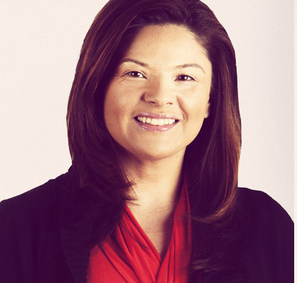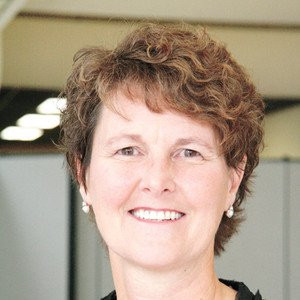It’s All About Education: Kids Learn Through Experience
Wednesday, September 16, 2015
“Kids love to sit at desks all day and do paper-and-pencil tasks!” said no one ever. If you went to school, what did you like best about it? What were your favorite subjects? How did your favorite teachers connect with you?
Chances are, you loved the classes in which you were able to do something you enjoyed, whether that was reading or performing science experiments. Like most kids, you probably relished being able to try new things and work collaboratively with classmates. Your favorite teachers may have made an effort to get to know you as a person, while making learning interactive and fun.
Great teachers know that children have individual differences and preferences, and they try to engage their students. They also know that children at various developmental stages learn in different ways. Most youngsters learn better through experience than through rote memorization. People have been teaching children this way for thousands of years.
GET THE LATEST BREAKING NEWS HERE -- SIGN UP FOR GOLOCAL FREE DAILY EBLASTFor example, when a man takes his daughter fishing for the first time, does he read her a book about it? Does he take out the fishing gear and label each of the parts of the rod and reel? Does he explain the uses of each of the various lures? No. He takes his daughter out to the pond, baits the hook, and lets her try it.
Throughout history, parents and employers have helped children and young adults to gain skills through guided practice. Before the industrial revolution, children learned how to run a homestead by assisting with household and farming chores. As apprentices to blacksmiths, bakers, seamstresses and numerous other tradesmen, young adults became skilled tradesmen themselves.
Kids learn by doing: the young woman who learns to fish comes to appreciate the value of being patient and quiet; each time she accompanies her dad, she learns a little more about which gear to use and when. She learns to identify the different kinds of fish and acquires an appreciation of ecosystems and the environment. She sees fish eat the frog eggs, while frogs eat insects, and she learns about the life cycle.
Similarly, young children gain knowledge about their world through play. Pediatric occupational therapist Angela Hanscom states that, “children desperately need to have a multitude of whole-body sensory experiences on a daily basis in order to develop strong bodies and minds.” Through unstructured play, children learn motor skills, develop the ability to manage their emotions, and gain proficiency in navigating complex social interactions.
Kids, especially young kids, learn through play. Last week, New York Mayor Bill de Blasio told MSNBC, “But in the 21st century America, we need a rigorous curriculum. And at the age of 4, kids can learn in a way they can’t learn later. They are particularly receptive to learning. So we have a rigorous curriculum, highly-trained teachers.” Mayor De Blasio clearly doesn’t understand how to prepare pre-kindergartners to achieve in school or succeed in life. Unfortunately, he is not alone.
I’ve written before about the growing emphasis on assessments and standards in kindergarten. Phyllis Doerr, a kindergarten teacher in New Jersey, wrote an article in which she explained exactly how her students respond to mandated testing. It’s amusing, until you think about the time wasted in this classroom and others like it all around the country. Both students and teachers are frustrated, and the testing is not only providing no benefits, but also detracting from the educational experience.
Teachers know that even older students need to play. One of the reasons the Seattle Education Association (SEA) entered into contract negotiations with the Seattle Public Schools this month was because they wanted thirty minutes of recess for all elementary students. (The school system agreed to this point, although the teachers ended up striking for other reasons.)
SEA President Phyllis Campano said, “We’re really glad the school board understands that recess is important for kids and it’s important for kids to learn.” Too many politicians and policy-makers don’t understand that play is not just about fun; it is the way that children learn about our world.
If all young children were allowed to spend their days learning the way they do naturally, through play and exploration of their environment, schools might not need as many behavioral modification charts, social skills groups, stress reduction exercises, or even remedial reading classes. Unfortunately, until we change our practices on a larger scale, we’ll never know.
Lauri Lee is an independent consultant with over twenty years of experience in both public and private education, with learners from infants through adults. With experience in teaching, marketing, communications, social media, development, admissions, and technology, she is able to synthesize many of the issues facing our educational system today. She lives in Providence, RI with her family, a big dog, and a small cat. She blogs at http://www.AllAboutEducation.net and you can follow her on Twitter at @fridovichlee.
Related Slideshow: RI Experts on the Biggest Issues Facing Public Education
On Friday November 22, the Hassenfeld Institute for Public Leadership at Bryant University, the Latino Policy Institute of Roger Williams University, the Rhode Island Association of School Committees, the Providence Student Union, and RI-CAN: Rhode Island Campaign for Achievement Now will host Rhode Island leaders in the public and nonprofit sectors for a symposium on "the civil rights issue of the 21st century, adequacy and equity and the State of Education in Rhode Island."
Weighing in on the the "three biggest factors" facing education in the state today are symposium participatnts Gary Sasse, Founding Director of the Hassenfeld Institute for Leadership; Christine Lopes Metcalfe, Executive Director of RI-CAN; Anna Cano-Morales, Chairwoman of the Board of Trustees, Central Falls Public Schools and Director, Latino Policy Institute at Roger Williams University; Tim Duffy, Executive Director, RI Association of School Committees; and Deborah Cylke, Superintendent of Pawtucket Public Schools.
Related Articles
- It’s All About Education: School Choice - Vouchers and Tax-Credit Scholarships Don’t Pay
- It’s All About Education: Failure to Launch - It’s Not Just a Movie
- It’s All About Education: Making a Commitment to Rhode Island’s Children
- It’s All About Education: How Poverty Impacts Brain Development and Learning
- It’s All About Education: Learning Life Skills at Hope High
- It’s All About Education: After School Programs Make a Difference
- It’s All About Education: How Vaccination Affects Schools – and Society
- It’s All About Education: Changing Lives with School Lunches
- It’s All About Education: How Breakfast Could Help Close the Achievement Gap
- It’s All About Education: Choosing the Right School for Your Child
- It’s All About Education: Re-Imagining Our Educational System
- It’s All About Education: Can Education Drive Social Change?
- It’s All About Education: Why So Many Choose Progressive Education
- It’s All About Education: What Kids Learn from Sports
- It’s All About Education: The Benefits of Intergenerational Programs
- It’s All About Education: Could Competency-Based Learning Be the Wave of the Future?
- It’s All About Education: The Most Wonderful Time of the Year?
- It’s All About Education: Why Summer Vacation Should Be Just That
- It’s All About Education: Divine Providence: Engaging Community
- It’s All About Education: High-Quality Early Learning: Necessary For All
- It’s All About Education: The Arts, Education, and Transformation
- It’s All About Education: A Broader Definition of Education
- It’s All About Education: Reading for Pleasure Predicts Academic Success
- It’s All About Education: Just Let Them Play













